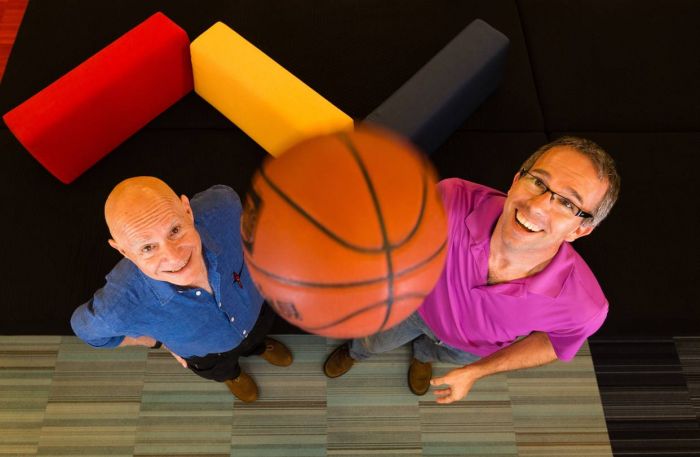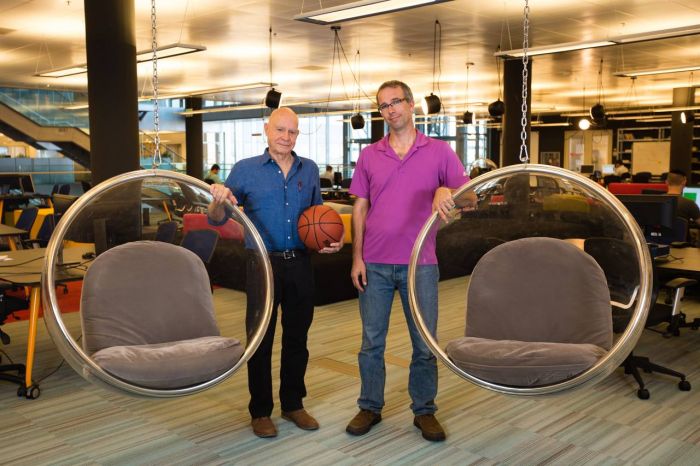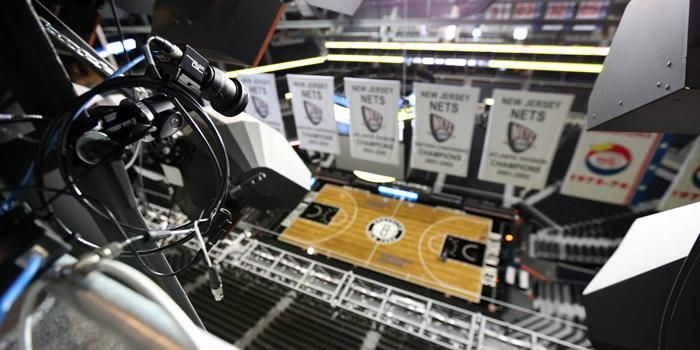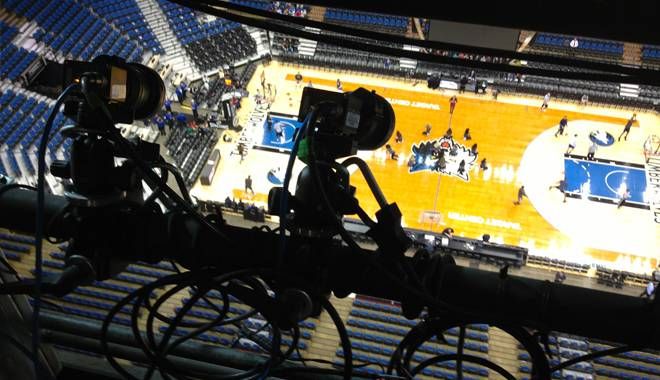It became an official record from the 3-point line, ushering in a new era in the NBA. Behind the shaping of the modern NBA, there are many unknown influences or resources at work, but many people behind the scenes unexpectedly became important players in its prosperity.
NBA’s data era
One group of members is Gal Oz and Miky Tamir. Gal Oz is a respected physicist who loves football more than basketball; Miky Tamir is a biomedical engineer who became one of the founders of a technology company after leaving the military. And they are all from Israel.


The sports technology product they created, SportVU, can detect sports status from a new angle. The most famous one is to use high-resolution tracking cameras to capture the subtle dynamics of athletes, which can produce thousands of images per minute. SportVU has pushed the basketball game into the era of data mining and shaken up this billion-dollar industry. It has changed NBA team decision-making, player training, techniques and tactics, evaluation standards and fans' viewing experience. It can almost be said to have completely changed the game. itself.
Although the NBA ended its cooperation with SportVU in 2016 and signed a contract with Second Spectrum for player data tracking, SportVU only survived in the NBA for a total of 7 years.
However, what we can see from the case of SportVU is how, catalyzed by the era of big data, the NBA has quickly and deeply evolved into another completely different professional league. There has never been another period in history like this. Rapid and dramatic evolution, but this evolution was ignited by Gal Oz and Miky Tamir thousands of miles away.
The encounter between Oz and Tamir was a typical "Israeli style". Oz learned that Tamir got to know Tamir through his classmate's military wife. The two hit it off, and not long after they met, they created SportVU based on the military model. technology company.
Tamir has a PhD in physics and has more than ten years of experience working for Israel's nuclear research center and defense engineering company. He was once a rising star in Israel in the fields of drones, satellites and computer imaging, but then Tamir stepped into In the field of entrepreneurship, he already had entrepreneurial experience before Stats. In 2005, Tamir founded Stats and hired Oz. Oz had worked in a special unit of the Israeli Ministry of Defense for more than ten years. "Visual intelligence-related work, this is the most accurate term I can think of."


The founding of SportVU
There is a very ambitious ambition behind Oz and Tamir's founding of SportVU. Their goal is to apply visual recognition technology to sports and track every node of the action by accurately capturing it with a camera. Although the goal seemed big, they immediately made significant progress in the next few years. Chicago-based sports data company Stats LLC once wanted to acquire SportVU, but the biggest gain was that they hired an additional business expert, Brian Kopp. Went to Tel Aviv for a tour, but the tour ended quickly because SportVU only had one office.
Next, the trend of professional sports gradually became clear, and player tracking technology became mainstream. Before SportVU became popular, there was an in-depth study of a Swedish company, which later became the official data tracking system of the major leagues. But in the booming technological innovation wave in Israel, almost no one has noticed the huge sports industry. "Even investors have a lack of interest in this project." Tamir said.
Kopp, the last to join, are tasked with selling their ideas to mainstream professional sports in the United States. Initially, Kopp worked with the NFL to install 20 cameras at the Green Bay Packers' Lambeau Field, but another league may be able to inspire from SportVU. There were more sparks. When the NFL decided not to sign the contract, Kopp turned to seek cooperation opportunities with the NBA.
In the fourth game of the 2009 NBA finals, Kopp got the opportunity to demonstrate SportVU in front of future chairman Adam Silver. Israel had never had an NBA player before. The third game was recorded by 6 ceiling cameras. Kopp demonstrated the capabilities of SportVU in front of Silver. "It's like the simplest arcade game, but it will definitely take everyone by storm."


In addition to the novelty of the data technology itself, it comes from Israel, which adds a mysterious and exotic atmosphere. It is even called "Israeli missile tracking technology" by many people. Although it is just a rumor, SportVU really does not have missile tracking technology, but Oz said that even if it is true It’s not surprising, “Tracking missiles is much easier than tracking balls, and missiles are easier to predict.”
The Dallas Mavericks were the first team to use SportVU. Owner Mark Cuban was amazed by the effect when he first saw it and immediately asked about the price and why no one else had bought the rights to use SportVU. Kopp immediately reached a cooperation with the Mavericks, but he believes that if every team has SportVU, they can achieve maximum benefit. The greatest value of SportVU is no longer the data produced, but how to use and interpret the data.
Next, Kopp received another request from the Mavericks, "Mark Cuban wants to track referees." Kopp was very hesitant. He told the Mavericks that he did not want to risk jeopardizing his relationship with the league. After all, referees have always been a sensitive issue in the NBA, but Kopp Niu replied, "Mark Cuban wants to track the referee." So SportVU started tracking the referee.
The Mavericks installed SportVU cameras at home before the 2011 season, when the Mavericks won the championship. "They changed the interpretation of the game," Cuban wrote in an email. "They had a new and huge impact."
The first six teams using SportVU are the Mavericks, Spurs, Rockets, Thunder, Warriors and Celtics, which happen to be the top six teams with the most wins in the past 10 years.


One day, when SportVU engineers were testing at the Boston facility, an unexpected problem arose. The Celtics' famous parquet flooring was too dark for their cameras to capture the trajectory of the ball. . When they were about to negotiate with the team's top management, an Israeli engineer told Kopp that he planned to ask the team if they had considered changing the color of the board to a bright color. Or are you considering White House Purple? Kopp made him promise to keep his mouth shut. Their mission was to do data, not anything else.
Kopp seized the opportunity when the stadium was closed in 2011. The teams had nothing to do, and they happened to have time to listen to his unique briefing. Kopp originally expected that the response from the teams would be relatively cold, but he did not expect it to be more enthusiastic than expected. For example, Kopp originally thought that only two or three people from the Knicks would attend, and the meeting would last only about 30 minutes. However, all important members of the team from top to bottom attended the meeting that day, and the meeting lasted for nearly three hours.
In 2013, SportVU had been widely used by various teams, and the league decided to sign an official contract. At this time, the teams blessed by the data found something strange, maybe they were playing the game the wrong way.
Now that SportVU has fully entered the league, the league is planning to introduce data analysis and use it to improve player health, influence tactics and style of play, etc. Strong teams are beginning to realize that through data analysis they can optimize their style of play, including more efficient shooting and more three-pointers. NBA executives said that the massive data produced by SportVU has accelerated the arrival of the three-pointer era. , now it is difficult for us to imagine the past era when three-pointers were not taken seriously, even though it was only 4 years ago.
However, Stats' official contract will not be renewed this season. Although it still has a lot of cooperation with the team, the league has changed to cooperate with Second Spectrum, a new company in Los Angeles (which is better at artificial intelligence).
The main members of SportVU have also left the company. Tamir left after Stats acquired SportVU, while Oz stayed to continue expanding the NBA's territory. Tamir and Oz later founded Pixellot, and Oz continued to serve as the director of the technology department. Tamir subsequently opened three companies, confirming that Tel Aviv, Israel, is the most prosperous region for new start-up industries in the world.
Kopp also left Stats and SportVU and now serves as a consultant for another startup. He has used relationships to impress the NBA and met with executives and showcased their products at the summer league.
Perhaps the NBA is distant and unfamiliar to Israel, but these batches of Israeli elites and startups are affecting the development and future of the NBA.